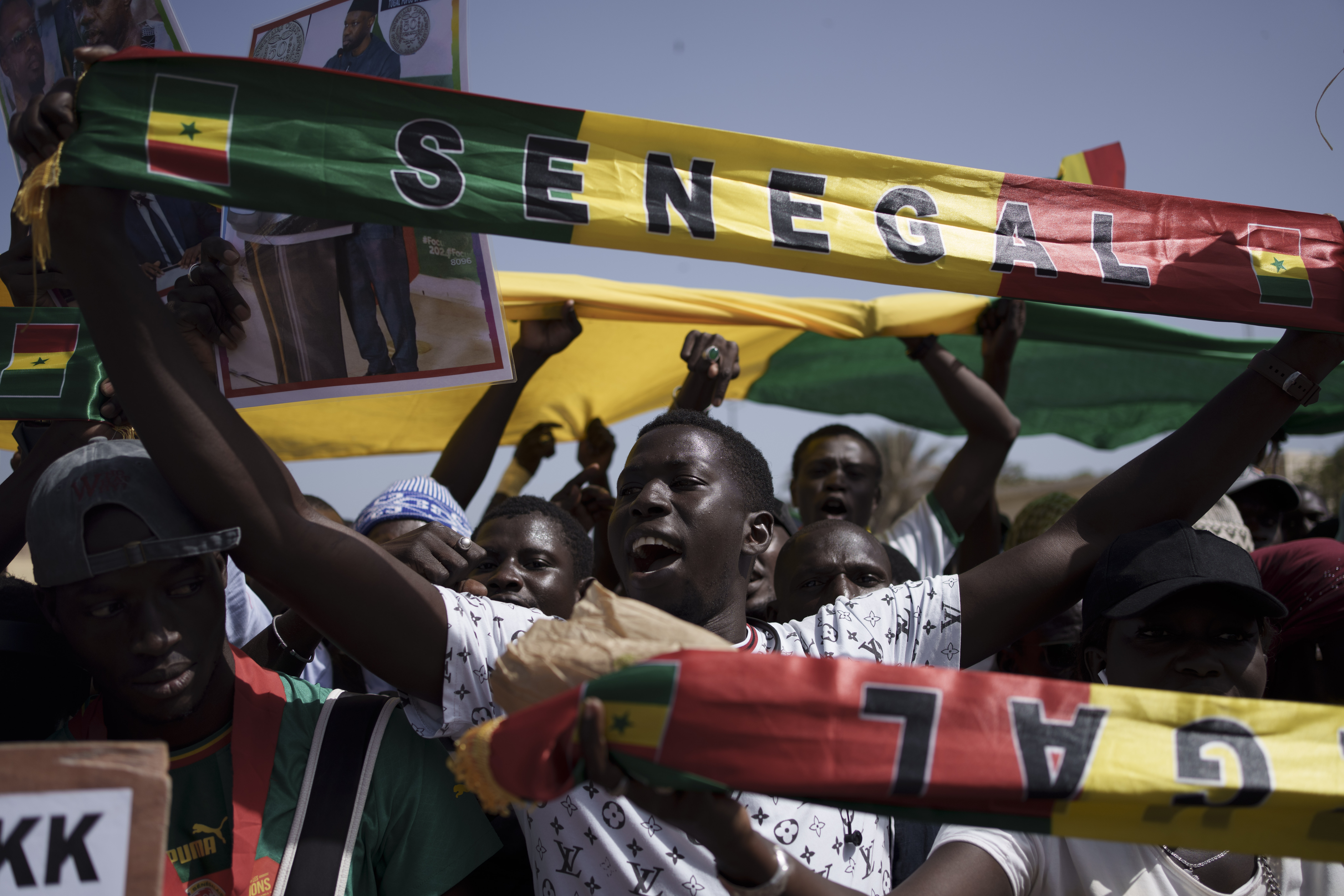“A leap into the void,” is what human rights expert Alioune Tine said in response to Senegalese President Macky Sall’s “unconstitutional delay” of the upcoming February 25 election. Tine added that postponing the election until December 15 plunges the West African country into “uncertainty and (possible) violence,” reported Foreign Policy’s World Brief columnist Alexandria Sharp.
Kicking out or null and voiding opposition leaders seems a bit of a dramatic move unless, as some are calling it, a “coup,” minus military intervention, is in the works. What it does is extend President Sall’s stay in power by at least eight months, when his term was set to end on April 2.
Hours before official campaigning for elections was scheduled to get underway, President Sall, in a surprise live-streamed speech to the nation, announced, “… troubled conditions could seriously undermine the credibility of the ballot by sowing the seeds of pre-and post-electoral disputes.”

These troubled conditions appear to be camouflage. As recently as 2023, the country was rocked by protests after influential and popular opposition figure Ousmane Sonko was sentenced to two years in prison, on what many called trumped-up charges, including rape, which was dropped, then an added charge of influencing youth, of which he was convicted.
“For the first time in its history, Senegal has just suffered a coup d’état,” Ousmane Diallo, a researcher with Amnesty International, posted on X, formerly Twitter. In an interview, with the New York Times, Diallo explained that the dispute President Sall cited as the reason for the postponement was “a manufactured crisis, a crisis created in a week to stop the electoral process.”
“This is a Louis Bonaparte 1851-style coup,” Dr. Ndongo Samba Sylla, a Senegal-based economist, told the New York Times, referencing Napoleon’s nephew, an elected president of France who, when his term ended, declared himself emperor.
The president’s announcement was rejected by most opposition parties, except the Senegalese Democratic Party (PDS) which had requested that the election be postponed over the disqualification of its candidate Karim Wade for allegedly holding dual citizenship including France, reported semafor.com. Senegalese law bars a person with dual citizenship from running for president.
“Sall has been president since 2012, first serving a seven-year term before a constitutional change in 2016 that reduced presidential terms to five years. Last July, he said he would not run for a third term, after previously fueling speculation by saying he had the right to do so after the revision to the constitution,” noted semafor.com
The move to delay the vote sparked the immediate resignation of government minister Abdou Latif Coulibaly, who said he could not understand the decision. “Maybe it’s just that when you’re in power, you think anything is possible,” Coulibaly told French radio station RFI after resigning. He added that the president “cannot extend his term, it’s impossible.”
According to the Institute for the Study of War (ISW), “Senegal’s highly professional military is unlikely to launch a coup to take advantage of the unrest, but the spate of coups across Africa since 2020 underscores the risk of such an event.”
African Center for Strategic Studies in a report titled, “Creating a Culture of Military Professionalism in Senegal” confirms the view of ISW. “Senegal’s army and its leaders have always been very firm about the fact that soldiers do not endorse any particular affiliation, be it political, religious, or confessional.
Military leaders constantly say, ‘We aren’t involved in these issues.’ The moment in which we live, however, shows that nothing is irreversible. Thus, an ongoing effort is made to institutionalize this view, not just in officer schools, but also for non-commissioned officers (NCO), soldiers, and at all levels,” the report stated.
Long lauded as a regional model of democracy, Senegal’s electoral process was in fact “a system to cheat,” Dr. Sylla told the New York Times. This reflects a dynamic mirrored across Francophone Africa: aging presidents who are unpopular with their youthful electorates, with charges continually brought against potential opponents.
“Senegal is not democratic, for me,” he said. “Democracy is about political equality. We don’t have that.”
Last year during unrest in Senegal over elections, Dr. Sylla said in an interview, “Until now the ruling class (including most intellectuals) has been satisfied with the neo-colonial pact with the French elites. As long as political struggles do not challenge this neo-colonial pact, the country can aspire to neo-colonial political stability.”
In his interview with Review of Africa Political Economy in an article titled, “The June Days—Senegal’s struggle for justice,” Dr. Sylla added, “This is the same type of ‘stability’ found in countries such as Cameroon, Gabon and Côte d’Ivoire (until the death of Houphouët Boigny) … .”
These problems have led many young Senegalese to turn to a politician who portrayed himself as a savior from the country’s elites—from France and from economic hardship—the outspoken 49-year-old opposition leader Ousmane Sonko.
Follow @JehronMuhammad X, formerly Twitter













